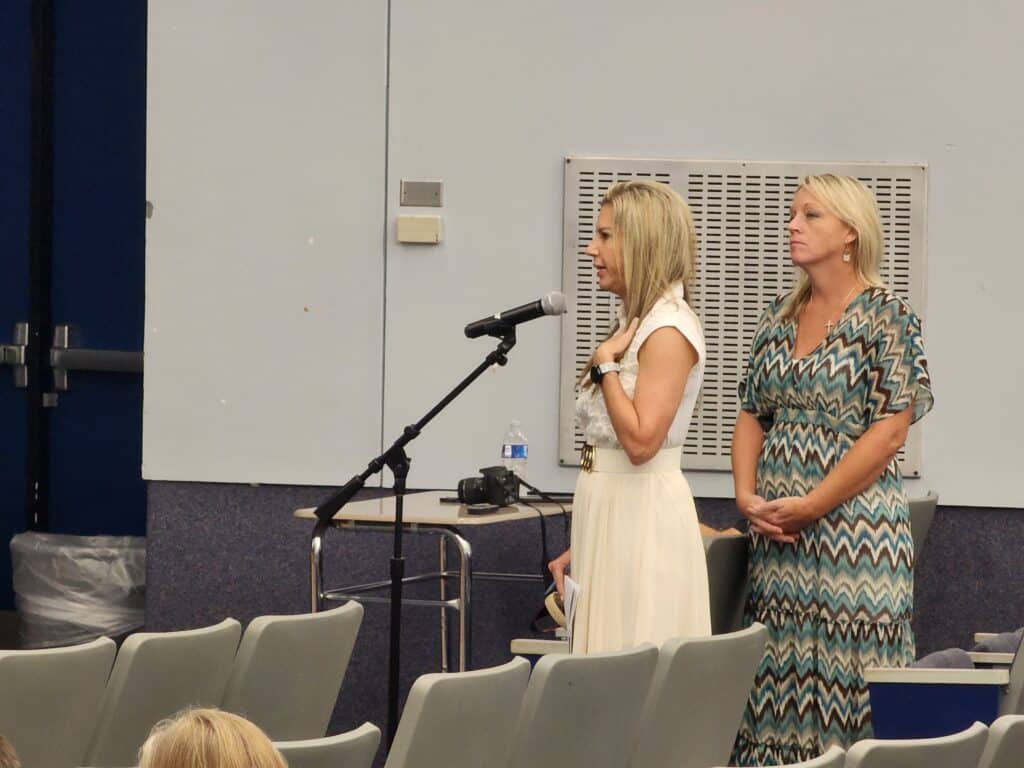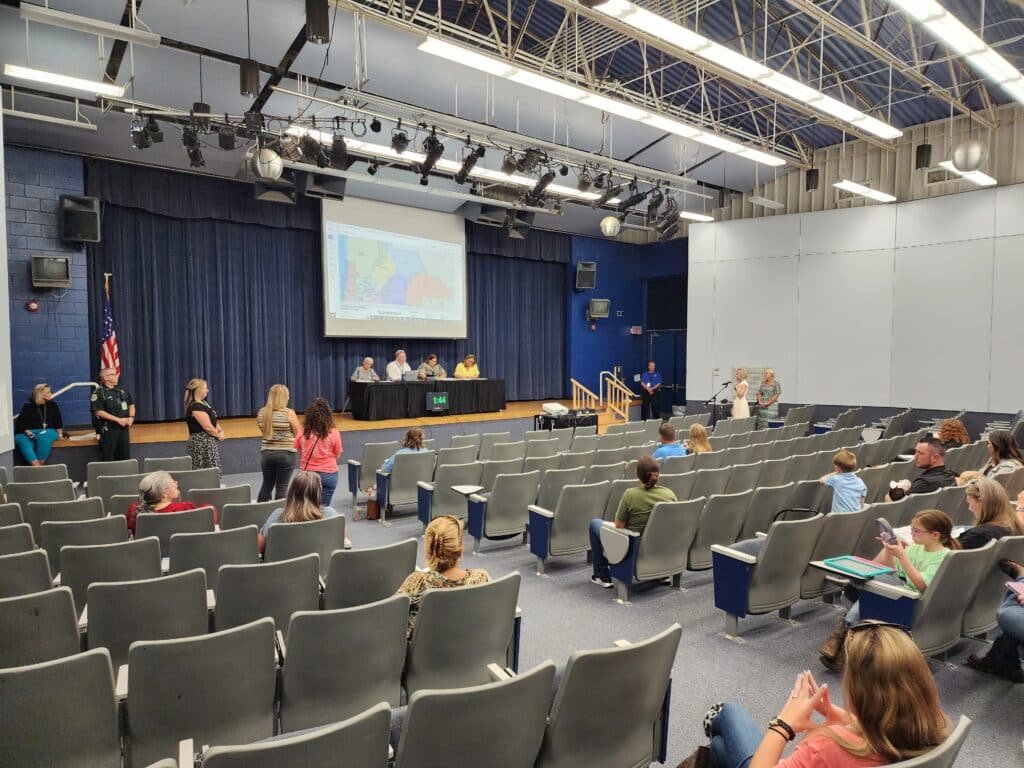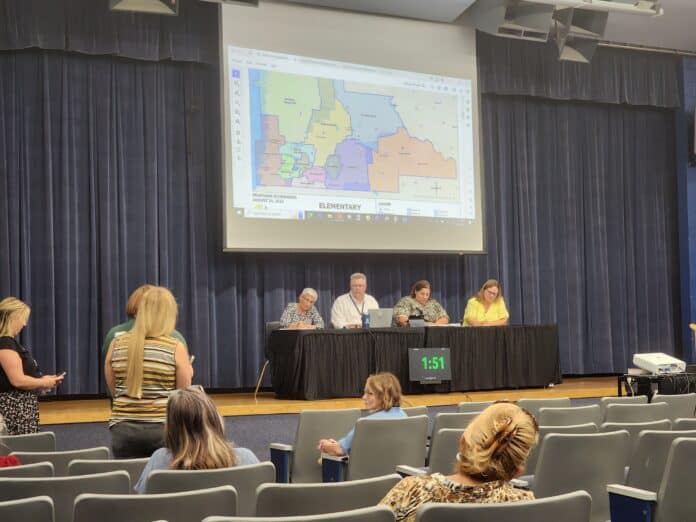On Thursday, August 24, school district staff and Rezoning Committee members met for the third public workshop to present and gather feedback regarding the rezoning of elementary and K-8 schools in Hernando County. This forum followed a pair of others that took place on June 15 and July 27. The first of these gathered primary and secondary criteria for rezoning. The second reviewed the feedback from the previous meeting and online comments, as well as proposed rezoned maps. As of Thursday’s forum, the committee announced they have had 600 comments on the “Let’s Talk” app that the staff has used to gather feedback on this issue. The committee will present the comments to the board on October 10.
The proposed plan calls for changes to school zones, adding a partial zone for the magnet school Chocachatti Elementary, and Nature Coast Tech would be adjusted from a partial zone to a full zone itself. The committee insisted that these changes would not affect any current magnet school students and that they would remain in their schools “to completion.” Before the floor was opened to the concerned parents, it was also explained that this was being done to ease overcrowding at surrounding elementary schools.
One hangup: Among students not zoned for the school, the criteria for enrollment at Chocachatti will remain 70 percent lottery and 30 percent portfolio. While this will preserve the current capacity of the school, this is where many of the questions stem from. Will anyone be turned away from Chocachatti under the new plan who would have been accepted previously?
The committee’s stated purpose at the meeting was to judge how “the people perceive the impact to the school and the community as a whole” and seek feedback on minor adjustments that were necessary. Those responses will then be put before the board in October, where they will decide whether to approve or modify the current map.
The responses that followed were about more than just an adjustment to the proposal, however. It was a wholehearted, near-unanimous repudiation of the plan that is set to go into effect during the 2024-2025 school year. A number of disgruntled community members voiced their displeasure and confusion with the plan at Thursday’s meeting. Amanda Braswell, the mother of two Chocachatti Elementary students, opened the public segment.
“How will you choose to remove what student from the school due to overcrowding? That is a question you need to think about,” Braswell said. “Another question is, are the parents of the children who are zoned for this school going to be held to the same standards of volunteer hours that are required for this type of program? Will you choose to remove that student if those requirements aren’t met?”
“Everybody who comes to our micro-society is highly involved,” Chocachatti Micro-society Coordinator Silvina Doherty said. “Parents have to sign that they are going to volunteer. They have to be prepared for the rigorous work that we do in the hands-on learning… If you have students that are not wanting to be there because they just live there, it doesn’t help.”
“I believe that by allowing a partially zoned school is creating an unfair process to parents that are struggling to get their children into a better school,” Mary, the mother of a Chocachatti student, said. “It was to my knowledge that they removed the sibling rule because it was an unfair process. So, by allowing students who are in zones to [go to Chocochatti] is creating an unfair process.”
Why the fervor around Chocachatti? As discussed by Amanda Braswell and Silvina Doherty, it is largely due to parent involvement and the school’s micro-societal system. A relatively novel concept among elementary schools, a micro-society refers to students joining career-oriented groups, working on-campus jobs, earning and spending “micro-bucks,” balancing checkbooks, learning how to write resumes, and more. Demonstrating further the passion of parents for Chocachatti, Braswell reached out and provided further details.
The mother is acutely aware of Chocachatti’s programs, as she volunteered over 120 hours of her time last year. She urges that the micro-society programs teach students necessary life lessons that many other schools do not teach. This enables them to learn skills that even those graduating from high school often lack. Through this, children learn the value of money and share in a living ecosystem of service and commerce. “Find me another school that does that.”



